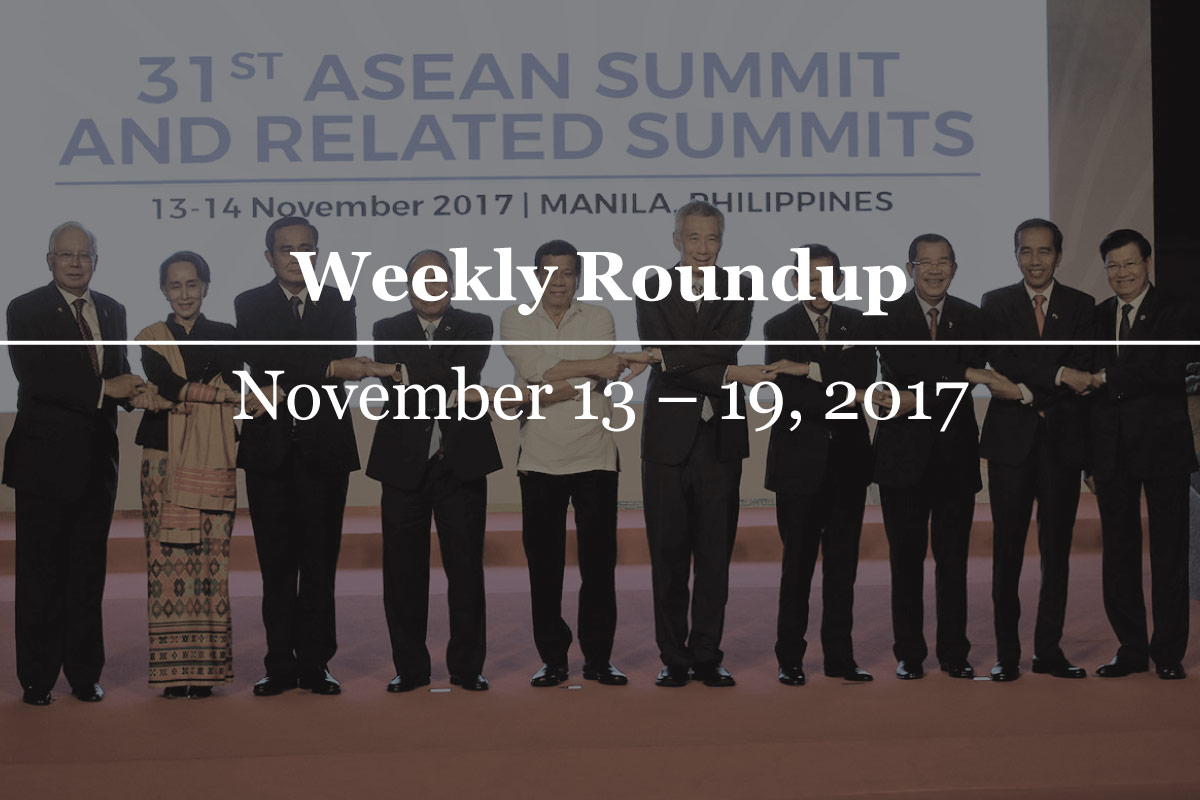Much ado about the 31st ASEAN Summit
The highlight for this week was the conclusion of the 31st Association of Southeast Asian Nations (ASEAN) Summit and Related Meetings which began last week. After four days of high-level meetings, dialogues and forums, the outcomes of the summit were mixed.
The progress of the summit did produce some very interesting talking points.
Is US President Donald Trump’s protectionist “America First” policy pushing the superpower to isolation within the region?
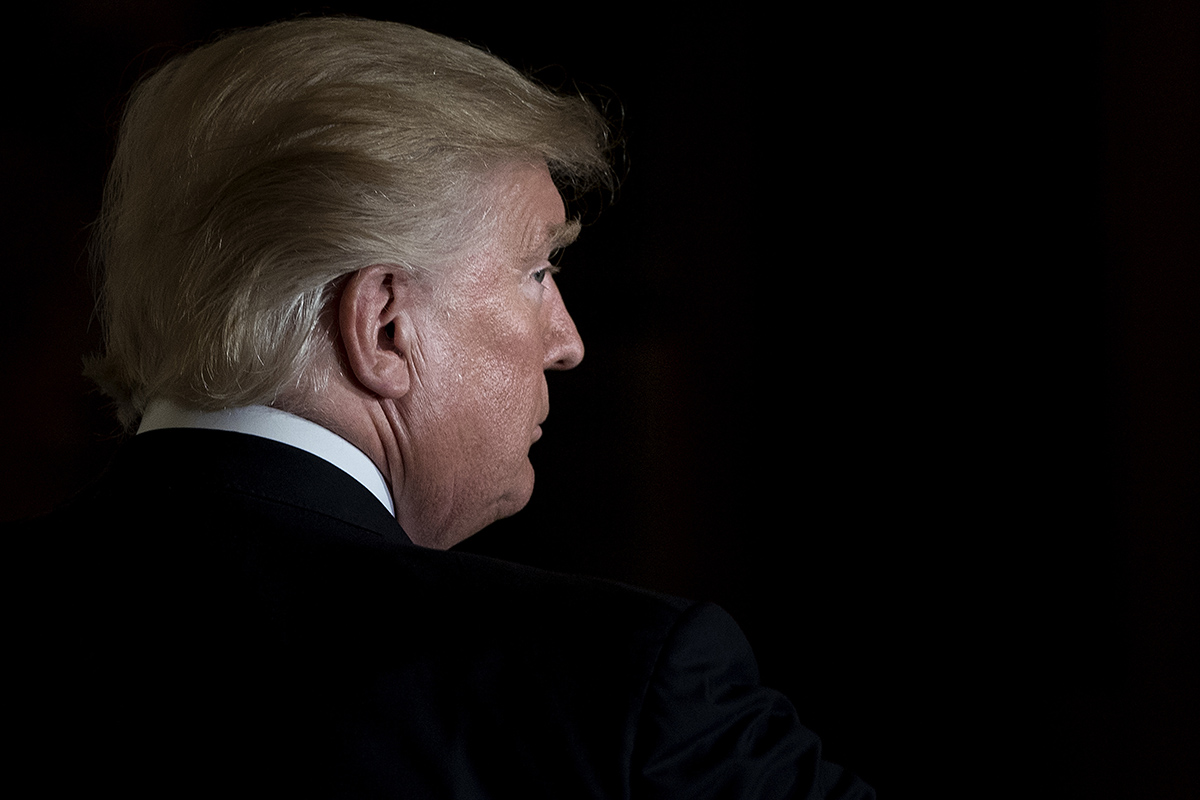
In this picture taken on October 6, 2017, US President Donald Trump leaves after a Hispanic Heritage Month event in the East Room of the White House in Washington, DC., U.S. (AFP Photo/Brendan Smialowski)
Trump and Chinese President Xi Jingping’s closeness was also much talked about as China pulled out all the stops – unlike the visits of past US Presidents – when Trump visited Beijing.
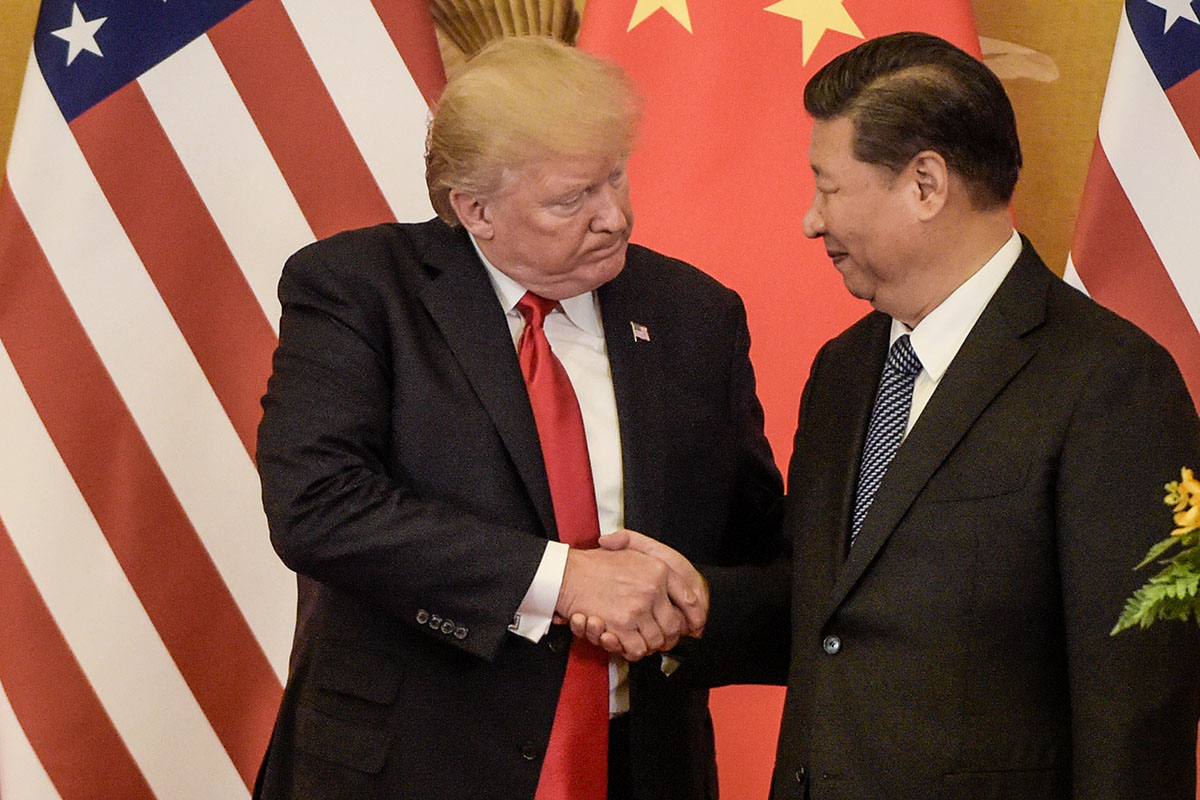
US President Donald Trump (L) shakes hand with China's President Xi Jinping at the end of a press conference at the Great Hall of the People in Beijing on November 9, 2017. (AFP Photo/Fred Dufour)
ASEAN also made a strong commitment to empowering women in the workforce by signing the Action Agenda on Mainstreaming Women’s Economic Empowerment.
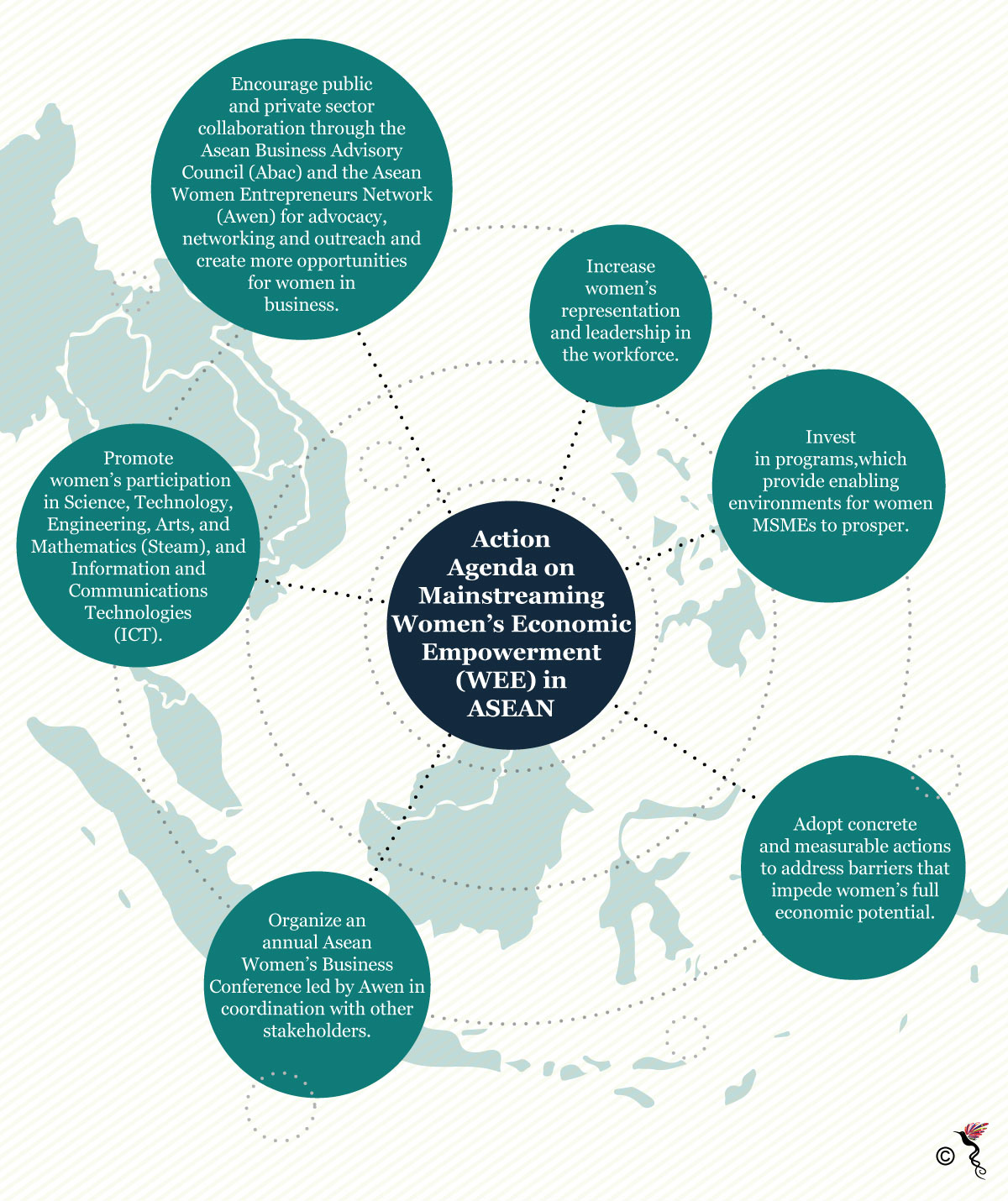
The Action Agenda on Mainstreaming Women's Economic Empowerment (WEE) in ASEAN.
Besides that, ASEAN and India renewed their commitment towards one another in matters of trade and security.
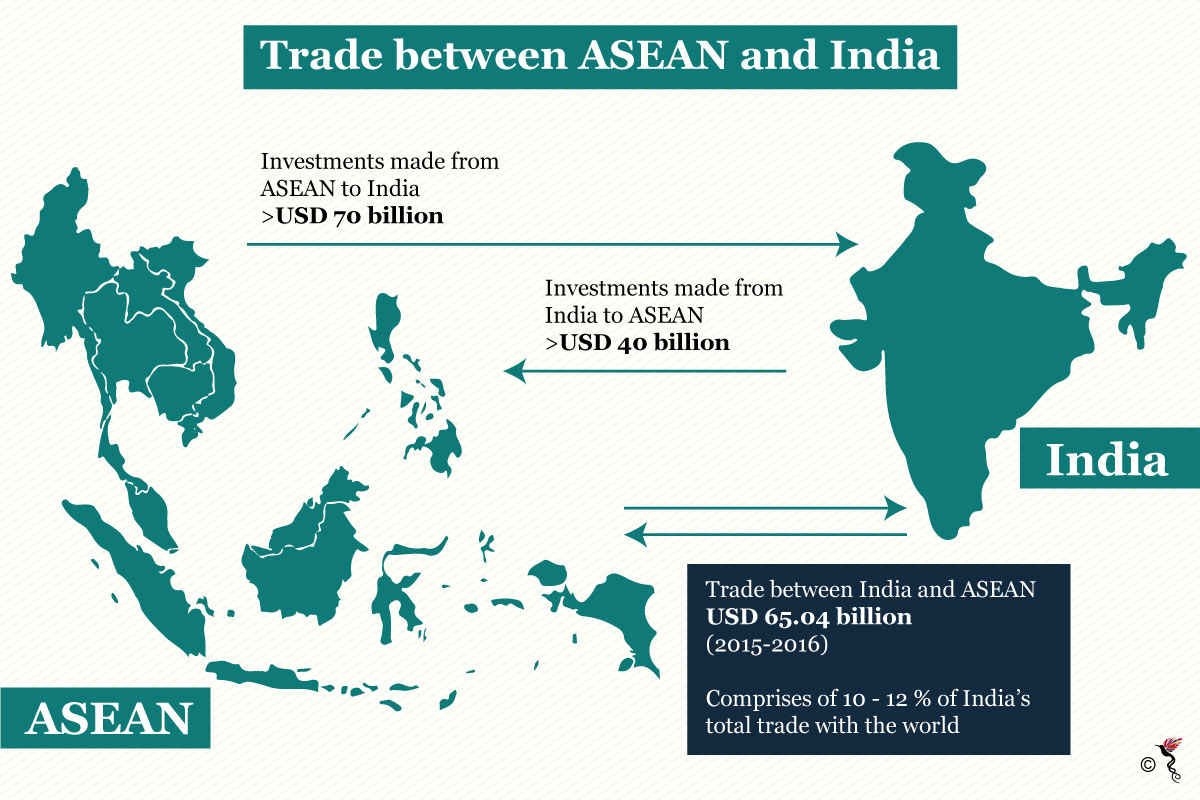
Trade between ASEAN and India
India, alongside Australia, South Korea and Japan are likely to play a much more integral role within the region, evidenced by Trump referring to the region as “Indo-Pacific” and not the more Chinese-centric “Asia-Pacific.”
Matters of the environment
The typhoons and storms currently ravaging countries like Malaysia, Vietnam, Thailand and the Philippines prompted an exploration into flood control mechanisms in Southeast Asian countries.
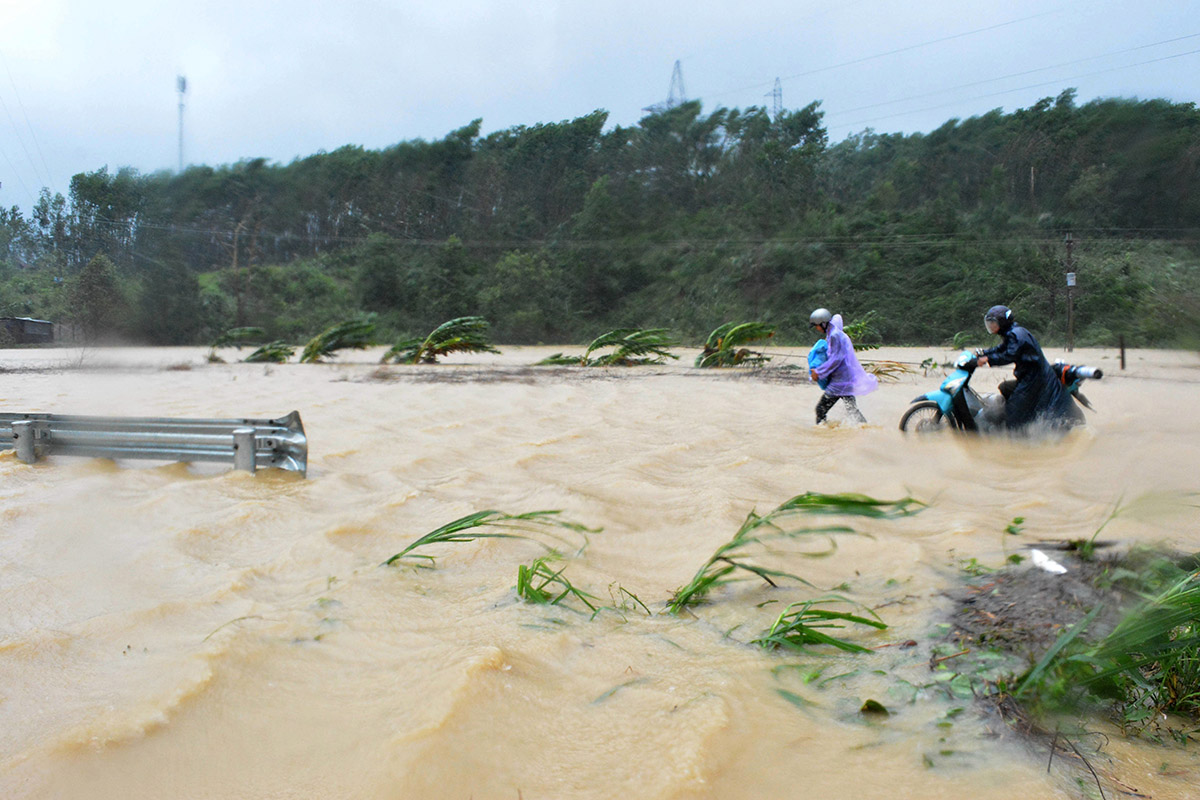
In this picture taken on November 4, 2017 shows people walking through floodwaters on a highway in the central province of Dak Lak brought by Typhoon Damrey. (AFP Photo via Vietnam News Agency)
We also discovered that the region is home to many polluted rivers – some of which are important lifelines to communities that depend on these rivers for their livelihood.
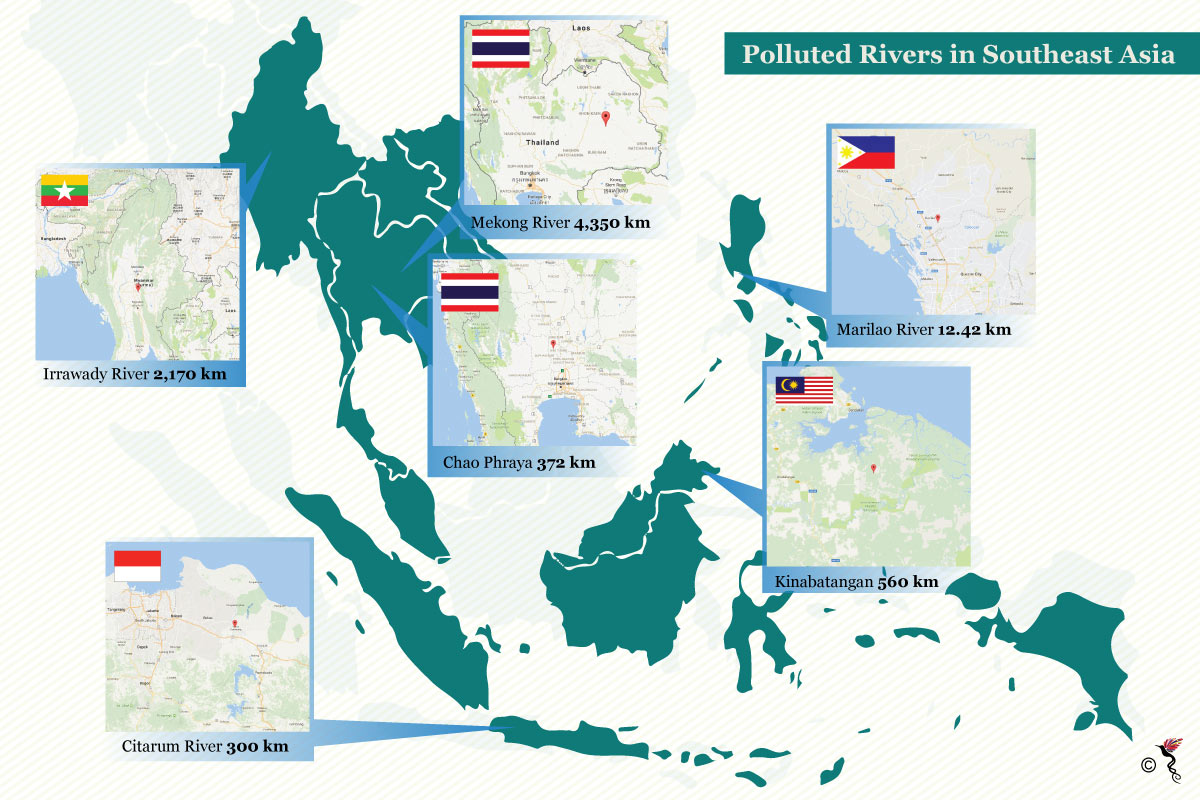
Polluted rivers in Southeast Asia.
Southeast Asia: Leading innovation and technology
In a recent smart city ranking released by EasyPark, two ASEAN nations – Singapore and Malaysia made the top 100. Although smart cities in ASEAN is still in its formative stages, the region is likely to see the mushrooming of smart cities in other ASEAN nations in the near future.
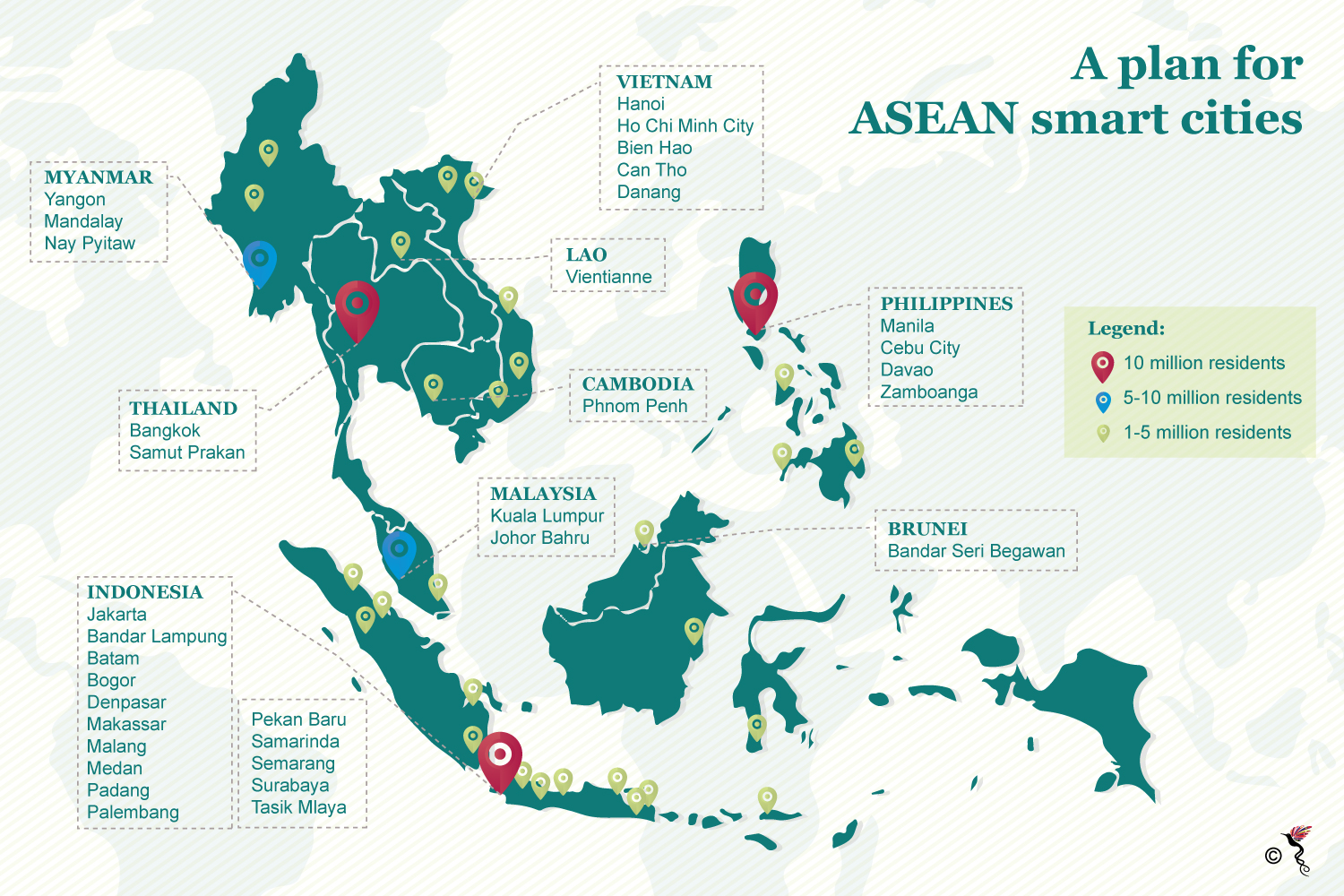
The plan for ASEAN smart cities
Malaysia and Singapore stole the spotlight once again in terms of leading technology in the region – this time with regards to digitalisation. We explored Singapore’s Digitalization Hub which it launched in August in partnership with Siemens and Malaysia’s Digital Free Trade Zone (DFTZ), a brainchild of tech mogul Jack Ma, owner of AliBaba Group.
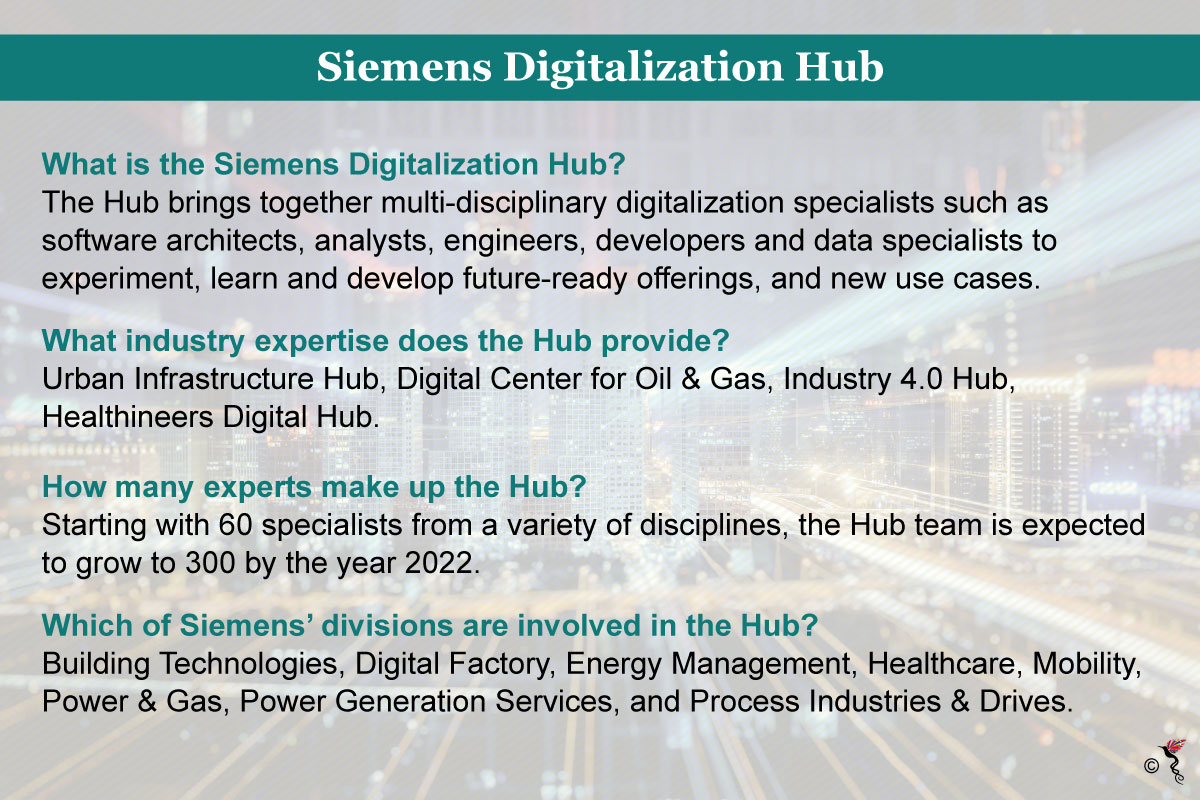
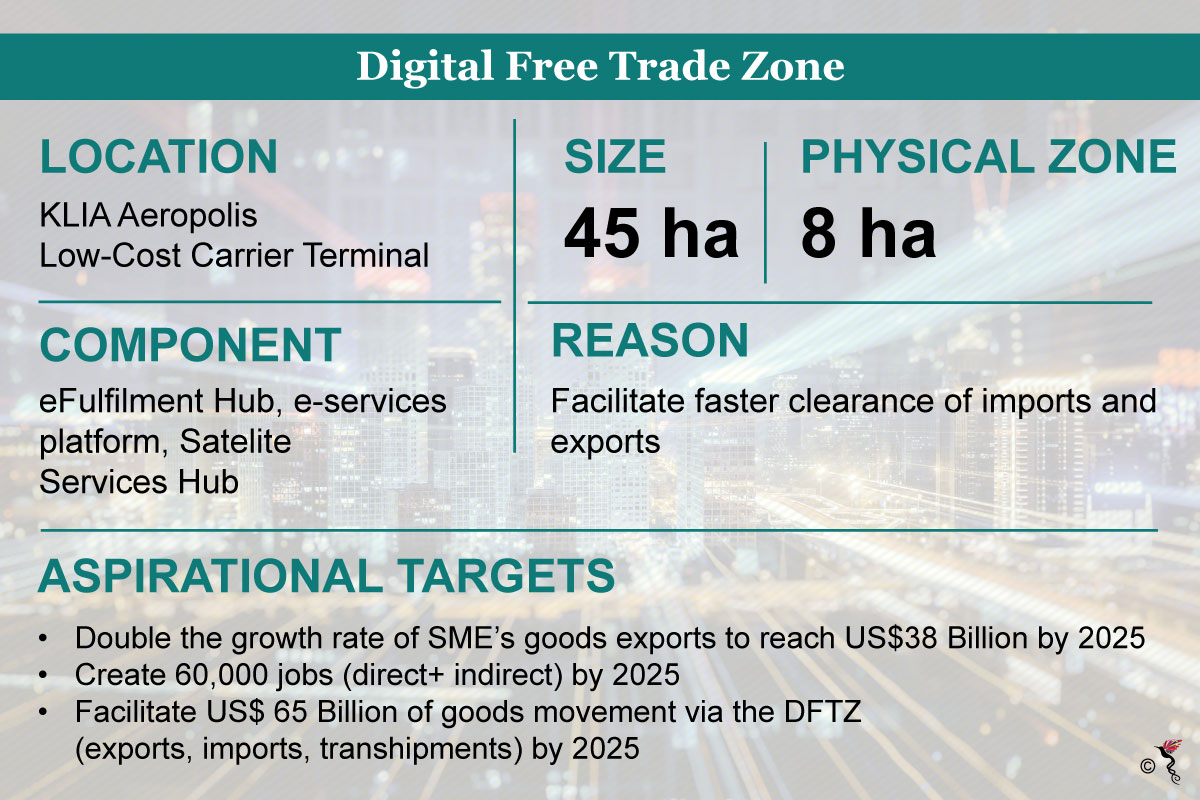
The Siemens Digitalization Hub and Digital Free Trade Zone
The ASEAN Post also discussed the progress of Southeast Asia in the Fourth industrial revolution which provides an opportunity for ASEAN to meet its goal of greater inclusion by integrating micro, small and medium enterprises (MSME) into global value chains.
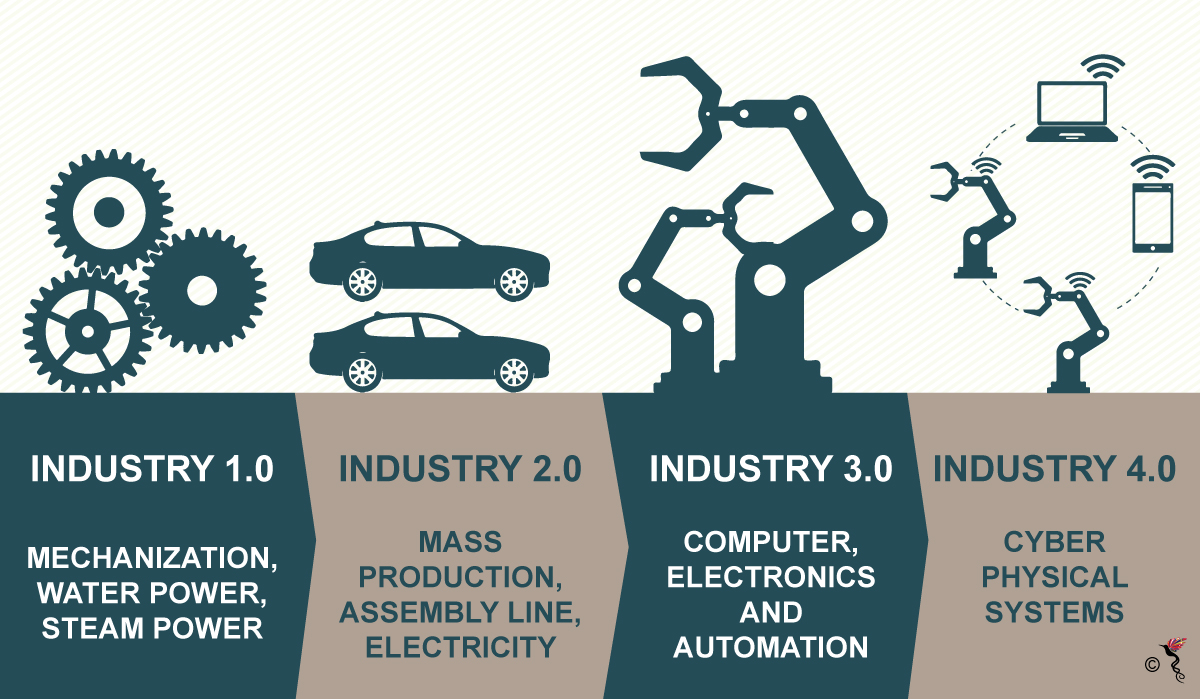
The industrial revolutions through the ages.
To wrap up the week, we dived into the ride-sharing business in Southeast Asia and analysed the “battle” between the top ride-sharing companies operating here – Uber, Grab and new player, Go-Jek. How will their competition pan out is anybody’s guess.
Recommended stories:
